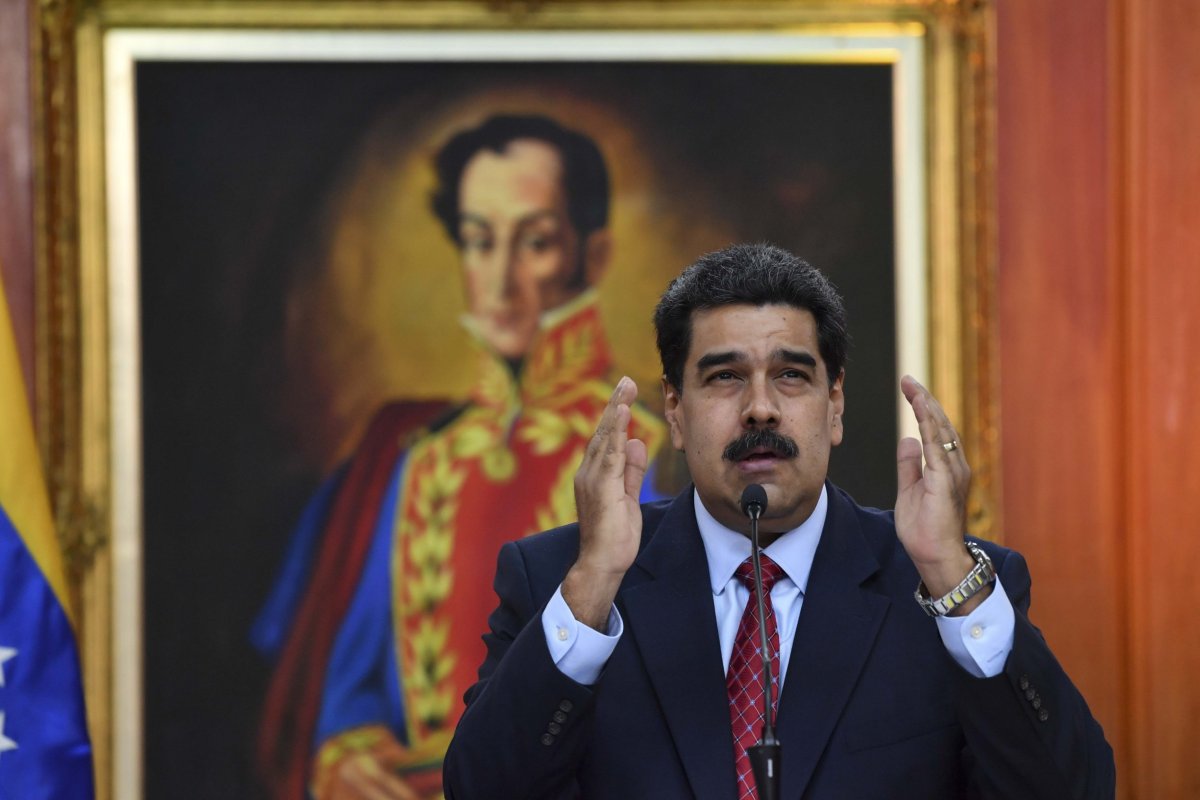Venezuelan President Nicolás Maduro has dismissed domestic and international demands for a snap presidential election to address the political crisis in the South American nation, while imposing travel and financial restrictions on his rival Juan Guaidó.
Guaidó—the 35-year-old leader of the opposition-controlled National Assembly—called for an election when he declared himself interim president of Venezuela last week. A host of nations, led by the U.S., rallied around Guaidó, while multiple European nations urged Maduro to call elections by February 3.
But in an interview with the Russian state-backed RIA news agency, Maduro—who is supported by nations including Russia and China—said he would not respond to blackmail and that the next presidential election would not be held until 2025, Reuters reported.
According to The Telegraph, Maduro declared, "Presidential elections in Venezuela have taken place, and if imperialists want new elections let them wait until 2025," in an apparent reference to the United States. Maduro won an election held in May, but opponents boycotted the vote and alleged the process was rigged in the regime's favor.
The authoritarian leader did suggest it "would be very good to conduct parliamentary elections at an earlier stage. It would be a good form of political discussion." Maduro said he was "ready to sit down at the negotiating table with the opposition so that we could talk for the good of Venezuela."
For all his praise of dialogue, Maduro has been upping the pressure on Guaidó as he struggles to retain control of the cash-strapped nation. On Tuesday, Venezuela's Supreme Court—which is loyal to Maduro—imposed a travel ban on Guaidó and froze his bank accounts.
The sanctions were imposed soon after the attorney general ordered an investigation into Guaidó over his alleged role in "serious crimes that threaten the constitutional order."
Guaidó responded stubbornly, saying, "We are here. We will keep acting and working to confront the humanitarian crisis," The Guardian reported.
Maduro escalated the situation in response to fresh sanctions imposed by the United States. He claims the U.S. leading an "economic war" and attempted coup to oust him from power. On Monday, National Security Adviser John Bolton and Treasury Secretary Steve Mnuchin announced the new measures against the country's state-owned oil company, PDVSA.
President Donald Trump's administration appears to hope that targeting the company will starve the Maduro regime of the much-needed funds that have so far kept Venezuela's powerful military loyal to the regime.
Guaidó has called for mass protests on Wednesday to apply more pressure to the regime. According to the United Nations, at least 40 people have already been killed in clashes since the power struggle erupted last week.
Guaidó has asked protesters to distribute pamphlets to soldiers that offer legal amnesty for any military personnel that abandon Maduro and defect.

Uncommon Knowledge
Newsweek is committed to challenging conventional wisdom and finding connections in the search for common ground.
Newsweek is committed to challenging conventional wisdom and finding connections in the search for common ground.
About the writer
David Brennan is Newsweek's Diplomatic Correspondent covering world politics and conflicts from London with a focus on NATO, the European ... Read more
To read how Newsweek uses AI as a newsroom tool, Click here.








